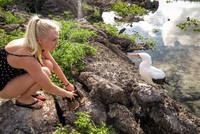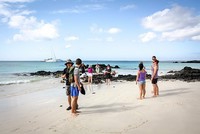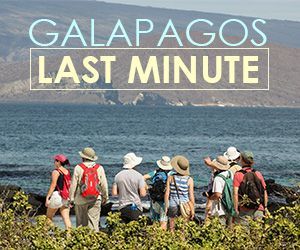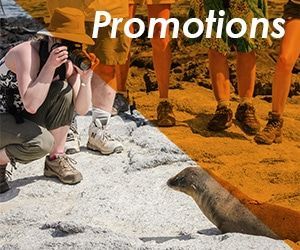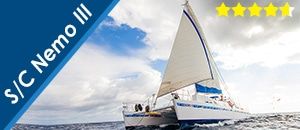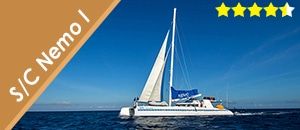Express Travel to the Galapagos Islands January 2023
Give yourself the chance to experience a great life experience by visiting the Galapagos Islands on the main all-inclusive boats. Express trips to the Galapagos Islands January 2023.
Here you can see deals on catamaran trips to the Galapagos Islands. If you want to know the islands, this is the best place where you can organize your trip and learn all the details of this beautiful archipelago.
Although the islands are located on the equator, the sea temperature varies widely between 78 and 28 degrees throughout the year. Its climate is very determined by the temperature of the marine currents, which generates microclimates that have influence in the particular habitats of the flora and fauna of each island.
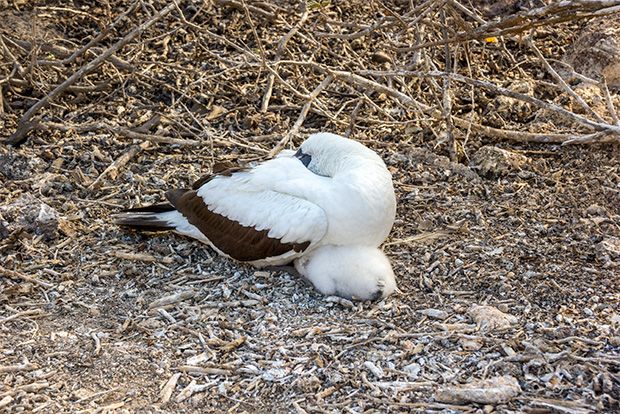
The islands also face drastic climate changes and almost every month presents their own peculiarities. The periods from January to March are the months with the highest temperature and humidity, March being the hottest month of the year. At this time there are lots of plants, and the pleasant sea temperature is ideal for water sports. In the period from July to September there is less rain and the islands are less humid, but cooler, the temperature of the water decreases considerably, but it is the ideal season to witness the oceanic fauna, since the animals have preference for the currents frost.
Do not know what to do in the Galapagos Islands? No problem! Scheduling with GalapagosInformation.com a tour through the islands, you can spend up to two weeks touring all the natural beauties that this magical place has to offer. All-inclusive trips can be booked online up to a month in advance, with the online payment option.
Genovesa Island: Genovesa island is also known as the island Tower and is considered as the most striking island of the archipelago. Its name comes from the city of Genova (Italy) in where it´s said that was the birthplace of Columbus. It is the ideal location for the ornithologists by the abundant presence of birds, highlighting some as seagulls of tail separated or lava seagulls, which are the only gulls in the world who have nocturnal hunting habits. Genovesa Island is an extinct volcano, which has suffered several landslides due to its ancient activity. We can find two areas of visit which is can access through a fissure that exists to the feet of the volcano doing this walk an unparalleled adventure. The island has shaped of horseshoe. Millions of years ago were a huge volcano whose southern wall collapsed, forming the Great Darwin Bay, where currently some birds have their nests. In the center of the Genovesa Island is the Arcturus Lake, of salt water, where resides the marine iguana smaller of the archipelago. In the same way, it is possible to see marine iguanas, fur seals and a huge forest of Palo Santo. At Darwin Bay, It is possible to dive along the inner to the outer wall. Another possibility is from the outer side of the volcano through the channel in the boiler. Genovesa is home of a great number of oceanic birds, both for breeding and nesting, including large frigates, blue-footed boobies, seagulls of frac, tropical birds, finches of Darwin and petrels.
Isabella Island: Even though is the largest island of all, it has a unique town corresponding to Villamil Port, a beautiful village in which there are numerous accommodations and whose atmosphere is notable for being rather more quiet than Ayora Port. Inside its main attractions stand out Punta Moreno, where live flamingos and many other types of birds, from where you have a beautiful view of Sierra Black, Blue Hill and the top of Fernandina Island. To discover other kinds of wildlife is a good idea to move to Urbina Bay, where there are iguanas, sea lions, cormorants, penguins and blue-footed boobies
Fernandina Island: The Island most recent of the group of islands, where is one of the largest active volcanoes in the world, from various types of lava that can be seen. His only place to visit constitutes Punta Espinoza, a strip of lava and sand that extends from the volcano itself to the sea, on whose coasts are the largest groups of marine iguanas of the archipelago, along with birds, penguins and sea lions.
Dragon Hill: It has its name because to for a long time, was one of the few places in the Santa Cruz Island where were land iguanas in healthy state. This place was part of varied efforts to maintain the colonies of iguanas, in order to ensure their reproduction. At present there are no dogs in Dragon Hill, although the Galapagos National Park carries out a lot of controls of other animals that can be dangerous. In the beautiful lagoons present in this site, there is shrimp (Artemia salina), the same as the food of the flamingos. At certain times of the year there is more abundance and therefore the quantity of these birds is larger. In times with many precipitations the water becomes too sweet and therefore the population of crustaceans is smaller, which has consequences on the amount of flamingos. Dragon Hill has been open to the general public since 1993. The beach has rocky formations. At high tide it is an excellent sector to do surface diving.
Tranquility and fun
Few people can resist the opportunity to practice water sports, such as surfing or snorkeling, enjoying this natural space and warm waters on unique beaches in the world.
GALAPAGOS CRUISES 2024
NEMO 3
| DEPARTURES | ITINERARY | AVAILABLE CABINS | SPACES | |
|---|---|---|---|---|
| There aren't available dates for the selected dates | ||||

